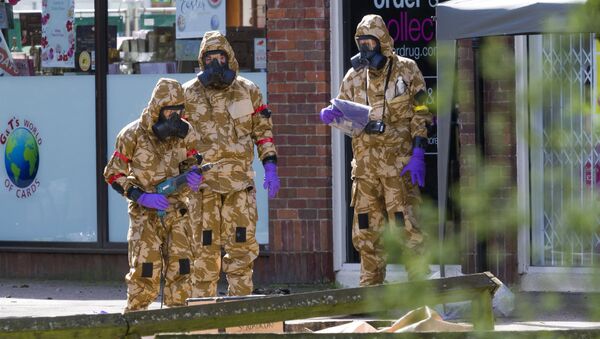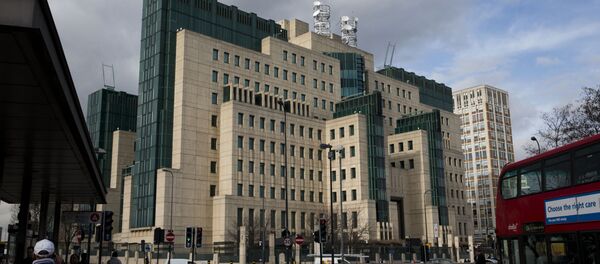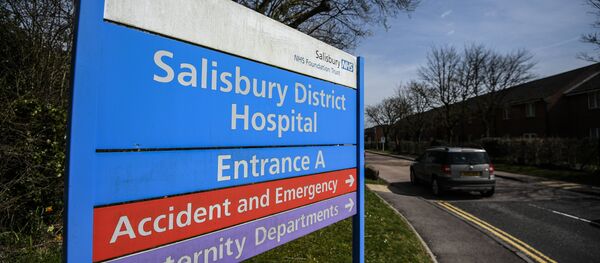Skripal and his daughter Yulia were found unconscious in Salisbury and were hospitalized on March 4. The UK authorities said that the Skripals were poisoned with a military-grade nerve agent. London claimed that Russia had orchestrated the poisoning. Russia has categorically denied these allegations noting, that the United Kingdom had not provided any evidence to substantiate its claims.
"Evidently, things went wrong … It’s a problem — what happened. It’ s bad reputationally both for security service and MI6 [UK Secret Intelligence Service]," Urban said at a presentation of his book in London on Thursday.
READ MORE: Skripal's Niece Wants to Meet Salisbury Case 'Suspects' Personally
Urban also insisted that the manuscript of his book had not been submitted for consideration by the UK intelligence. The author admitted that he had maintained contacts with the authorities while he was verifying various aspects of Skripal's story before the poisoning in March. However, there had been no briefings on the part of the UK intelligence, Urban said.
The author also told Sputnik in an interview that he did not rule out that the former double agent Sergei Skripal might soon make his own statement about what happened, especially after the release of his book.
"We would all like to know. Of course, given everything I have told you already, you will understand that he hasn't told me. But who knows maybe the appearance of my book will prompt a statement from him," Urban said, in an answer to the question on what version Skripal himself had about his poisoning.
The author of the book said that he had last seen Skripal in the summer of last year and has not communicated with him since then.
"I saw him last in July 2017, and spoke to him by phone in August of the same year… I have left him many messages but he hasn't got back to me. So no I'm not I'm not in contact with him now. He's been dealing with some really difficult times, it's understandable," Urban said.
He also admitted that he didn't know where Skripal was now, but suggested that the former spy was still in the United Kingdom.
"I don't know. But my feeling is yes. He likes it here, and he's been well looked after, particularly at Salisbury Hospital," the book's author said.
READ MORE: New Book Allegedly Sheds Light on Skripals' Life After Poisoning
Urban did not rule out that the former GRU colonel might experience some health problems after weeks spent in a coma.
He believes that Skripal communicates with the outside world through Yulia, since she owns social networks better.
"To some extent, I think Sergei is communicating through Yulia. We've seen this for example with the call to his mother. Of course Yulia is more 'connected' — and always was — through social media. She made clear in her early statement that she was able to access those communications. So she has had visitors, and there are some examples given in my book. The Russian press has reported for example that in June one of Yulia's friends from Moscow travelled to visit them in the UK. I think he's also been able to communicate with people," Urban said.
"The Skripal Files" is based on the interviews Urban had with Skripal last year. The excerpts from the book, circulating in the UK media, suggested that Skripal was reluctant to agree with the claims that the Kremlin and that the ex-spy had attacked him and had gone through psychological adjustments after waking up from weeks-long coma following the poisoning. On Wednesday, the Russian embassy in the United Kingdom said it believed the book was used to replace Skripal's testimony in the poisoning case.
On September 5, UK authorities brought charges against two Russian citizens, Alexander Petrov and Ruslan Boshirov, in the Salisbury poisoning case. UK Prime Minister Theresa May suggested that the Russian military intelligence service was behind the attack, adding that the poisoning had been authorized by the Russian central authorities, something repeatedly denied by Moscow.
In an interview with the RT broadcaster and Sputnik, Petrov and Boshirov said they had visited Salisbury on the day of the incident for touristic purposes adding they knew nothing about the Skripals and were not working for the Russian military intelligence.
READ MORE: Russian Embassy Calls Situation Around Skripal Case Well-Planned Provocation
The Russian Foreign Ministry said in July that Moscow had submitted to the UK authorities around 60 official requests to allow Russia gain access to the investigation into the Salisbury attack and its victims, who were Russian nationals. Moreover, Moscow has offered to work together with London and carry out a joint investigation into the case. London did not respond to these proposals, instead claiming that Russia rejected its calls for cooperation.
Russian Foreign Minister Sergey Lavrov said that the Skripal case was falling apart due to the lack of evidence proving Russian involvement. The Russian authorities have emphasized that the investigation into the Salisbury poisoning case required scrupulous analysis of data and close cooperation.




